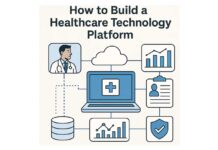The age of technology has brought about changes not only in work and business but also in each of our personal lives. Artificial intelligence has become an essential part of our everyday existence, significantly influencing how we live, work, and communicate. The integration of AI into our lives opens new horizons, making them more comfortable, safe, and enjoyable. How exactly are technologies changing our perception of daily tasks and improving quality of life?
Smart Assistants: New Horizons in Household Management
One of the most noticeable changes has been the emergence of smart assistants that help us manage routine tasks. These devices can control home appliances, schedule appointments, remind us of meetings, and even shop for us. With applications like Siri or Google Assistant, users can simply voice their requests, and AI fulfills them instantly. This saves time and makes daily tasks less tedious.
Technology has made it easier to organize our day. For instance, AI can analyze preferences and habits to suggest optimal solutions. Relaxation apps are also gaining popularity. Platforms like Nudify Online allow users to process photos, creating a calming atmosphere and helping them find time to unwind. Such tools enable people to escape the daily hustle and enjoy the moment, significantly enhancing overall quality of life.
Education and Learning: Access to Knowledge
The integration of artificial intelligence opens new horizons in education, significantly changing approaches to learning and information retention. AI-based online learning platforms offer personalized courses and programs tailored to individual needs. These technologies analyze student progress, identifying strengths and weaknesses, and based on this data, suggest additional resources and assignments. This makes the learning process not only more effective but also engaging, allowing each student to progress at their own pace and develop skills at their convenience.
Modern technologies also contribute to developing innovative teaching methods. Interactive simulations and game elements greatly increase student engagement, turning the learning process into an exciting journey. For example, the use of virtual reality (VR) allows students to fully immerse themselves in the content being studied. This not only makes lessons more visual and interesting but also helps develop practical skills in a safe environment. Students can experiment and make mistakes without fear of negative consequences, leading to a deeper understanding of the subject and better retention of information.
The impact of AI on professional training cannot be underestimated. With technology, companies can effectively organize training programs for employees by analyzing their competencies and learning needs. Algorithms can identify knowledge gaps and suggest targeted courses for improvement. This not only raises employees’ skill levels but also adapts training to industry changes, which is especially important in the face of rapid technological advancement.
The application of AI in education fosters the creation of a more accessible learning environment. Now anyone can gain quality knowledge regardless of their location, which is particularly relevant for people living in remote or rural areas. Online learning platforms provide access to a variety of resources, including lectures from leading experts and study materials that were previously unavailable. This creates equal opportunities for everyone, allowing individuals to realize their potential and achieve success in their desired fields.
Thus, the integration of artificial intelligence into the educational process radically changes teaching approaches, making them more personalized, interactive, and accessible. In the future, such technologies will continue to deepen and expand their capabilities, opening new pathways for the development of individuals and society as a whole.
Healthcare: New Horizons in Medical Technology
Another key area where AI shows impressive results is healthcare. Artificial intelligence assists doctors in diagnosing diseases by analyzing vast amounts of medical data. Algorithms can predict risks and identify patterns, allowing medical professionals to respond promptly to potential threats.
Technologies are actively used in telemedicine, enabling remote communication between patients and doctors. This is particularly relevant during pandemics and for individuals living in remote areas. For individuals seeking immediate medical support, innovative AI tools now allow them to get urgent care fast through online platforms. These systems provide instant preliminary assessments—helping to identify symptoms early and guide patients to the appropriate care, making healthcare more accessible and timely, especially outside traditional clinic hours. With the help of AI, patients can receive qualified assistance without leaving home, making medical services more accessible.
It is also worth noting that AI contributes to improving mental health. Apps offering meditation and relaxation help users cope with stress and enhance their comfort levels. Some platforms, like undress, allow people to process photos and find time to unwind, which also contributes to better emotional well-being.
Social Connections: Strengthening Communication and Interaction
AI-based technologies also help strengthen social connections. Social networks use algorithms to analyze users’ interests and suggest content that may be relevant to them. This fosters the formation of interest-based communities and enhances the quality of communication.
The integration of AI also improves communication between people. Chatbots and virtual assistants help individuals find the information they need and interact with each other. This is especially useful in today’s fast-paced life, where people often lack time for lengthy conversations.
Moreover, technology fosters the creation of a safe environment for communication. Algorithms can monitor and prevent negative behavior online, making interactions more comfortable and secure for users.
Conclusion: A Future Full of Opportunities
The integration of artificial intelligence into human life opens new horizons and enhances the quality of everyday living. Smart technologies simplify routine tasks, assist in education, improve healthcare, and strengthen social connections. While challenges remain, confidence that AI can help overcome them continues to grow. We stand on the brink of a new era where technology will play a key role in creating a comfortable and safe future for everyone.







